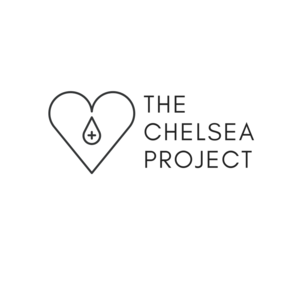CAMBRIDGE, MA, March 08, 2022 /24-7PressRelease/ — Two organizations with roots at MIT have joined forces to improve our understanding and use of rapid antigen tests in real-world settings. IDx20, headed by MIT scientist Irene Bosch, together with the Chelsea Project are the recipients of one of only two national research grants totaling $1.8 million from the Reagan-Udall Foundation for the FDA (FDA Foundation) to evaluate the Real-World Performance of In Vitro Diagnostics (PIVD). The project will be executed on the ground by the Chelsea Project, a coalition of teams led by the Center of Complex Interventions, a nonprofit also spun out of MIT.
The Chelsea Project has been at work since the early days of the pandemic in May 2020, bringing together researchers and data experts to work with the Chelsea Housing Authority and the Chelsea Public Health Department to help the people of Chelsea, MA understand and adopt Covid practices such as masking, testing, and vaccines. The city of Chelsea has population groups that are particularly at-risk for Covid due to poverty, overcrowding, age and health factors, and lack of access to education and health resources. Chelsea also has a primarily Latino and immigrant population, with a prevalence of confusion and misinformation about the pandemic due to limited Spanish-language resources. Using cutting-edge interventions such as wastewater monitoring, resident surveys, state-of-the art computational data analysis and targeted, behaviorally designed community outreach, the Chelsea Project helped to bring Cheslea’s Covid case numbers to among the highest in the country in the summer of 2020 to among the lowest by fall of 2021.
Now, IDx20 will work with the Chelsea Project to gather data and improve outcomes on rapid antigen testing in real-world settings. This funding will allow IDx20 and the Chelsea Project to expand their rapid testing study to monitor Covid-19 cases in three congregate living settings in Chelsea. Many of the residents in these buildings are seniors, people with disabilities, and people whose primary language is not English. Participants in the study enroll on a volunteer basis and agree to be tested once a week. The project staff are present at each testing site to have one-on-one conversations with participants, addressing the educational and social components to using home rapid tests effectively. The focus is on educating residents about antigen tests and empowering them to perform the tests themselves. Through these conversations, participants learn why frequent testing is important, what health factors can make them more vulnerable to Covid, and the specific scenarios where rapid tests can be used as an additional layer of protection against Covid transmission.
The study also collects valuable real-world data that can be used to help evaluate new rapid antigen tests. As part of the study’s data management system, the project team registers participants, labels test kits, collects participant responses, captures test strip images, monitors program performance, and reports results in a mobile app developed and maintained by BioIT systems. Confirmatory PCR tests are conducted on test samples that receive a positive result, and participants quarantine according to the Center of Disease Control and Prevention recommendations. This real-world data can be used to help new antigen tests receive FDA emergency use authorization which will improve rapid test availability and affordability.
“Chelsea was badly hit by Covid, with so many structural and cultural factors working against this population. Now, thanks to this grant and the amazing team of cross-disciplinary people who are working to combine their expertise in agile, on-the-ground ways, Chelsea has an opportunity to become a center of excellence for rapid testing and pandemic response,” says CCI researcher Karthik Dinakar.
A proactive approach to the “new normal”
With the Omicron surge past its peak and Covid cases dropping once again across the US, many are looking forward to easing restrictions and returning to a pre-pandemic normalcy. But Dinakar argues that we should instead be working toward a new normal, one that includes taking measures to prepare for another surge and proactively addressing public health concerns in general.
Access to rapid tests—and, more importantly, a widespread understanding of when and how to use them—will be an important part of the new normal. The White House’s new “test to treat” Covid policy relies on rapid tests to catch Covid cases as quickly as possible in order to treat them with antiviral medication, which are increasingly available but only effective when used early.
“Public messaging must continue to emphasize the importance and efficacy of rapid tests as an easy and effective way to help keep us all safe,” says Dinakar. “A key component of that public health policy must also be proactively making these tests available and, crucially, making sure everyone is comfortable using them correctly.”
The data from this study will not only improve rapid testing practices related to Covid, but will also help researchers and public officials better prepare for future public health crises.
“The work we’re supporting with the PIVD program through these two projects will contribute to the still growing knowledge base about SARS-CoV-2 diagnostic tests,” said FDA Foundation CEO, Susan C. Winckler, RPh, Esq. “We look forward to following the progress of this work and the insights it may provide towards the use of real-world data and real-world evidence in regulatory submissions.”
The Center of Complex Interventions (CCI) is a nonprofit, MIT spinout that applies scientific research to complex problems faced by communities. CCI initially started the Chelsea Project to address testing hesitancy in Chelsea, MA. The Chelsea Project is now a collaborative effort that includes government entities in Chelsea, local nonprofits, and startups that have partnered to deploy a range of different interventions such as city-wide wastewater analysis, rapid antigen testing, and a community-led communications strategy. The unique combination of these interventions helped increase both testing and vaccination rates in Chelsea.
—
Press release service and press release distribution provided by http://www.24-7pressrelease.com














